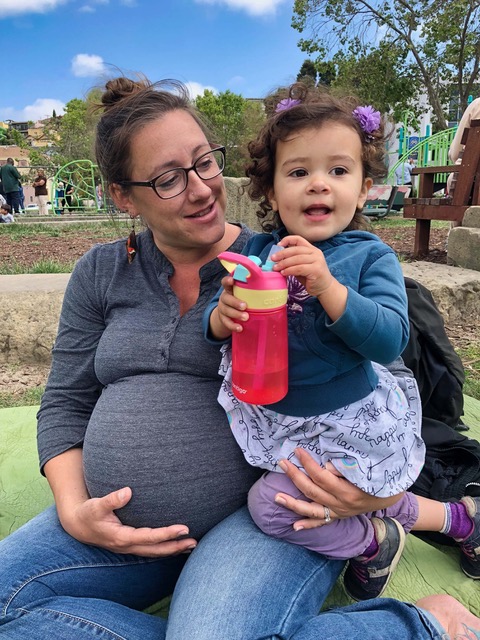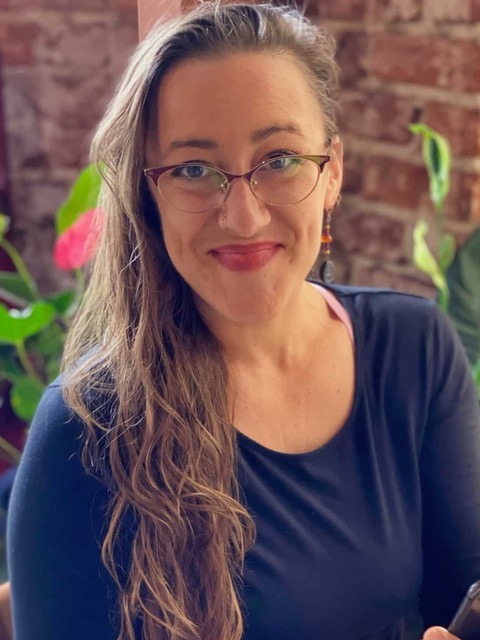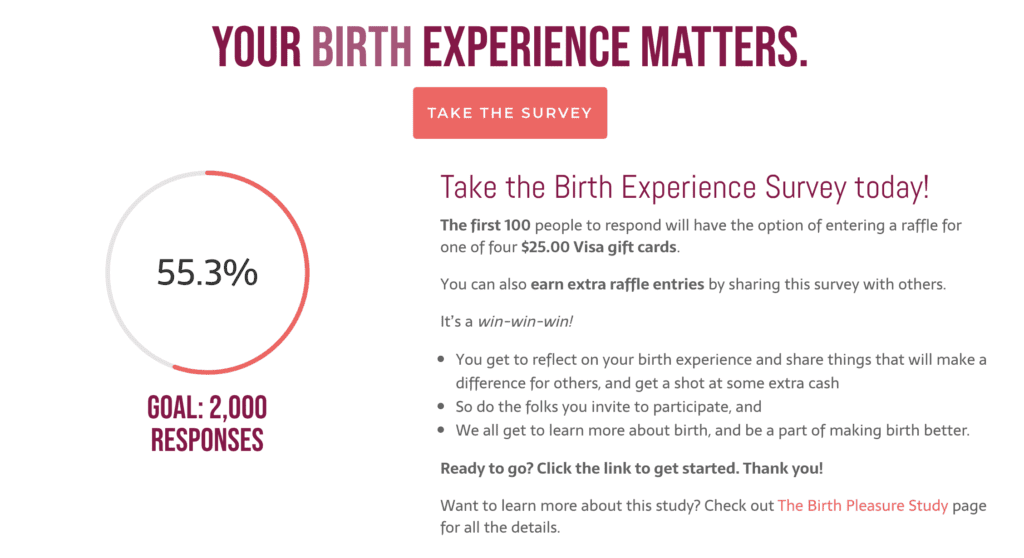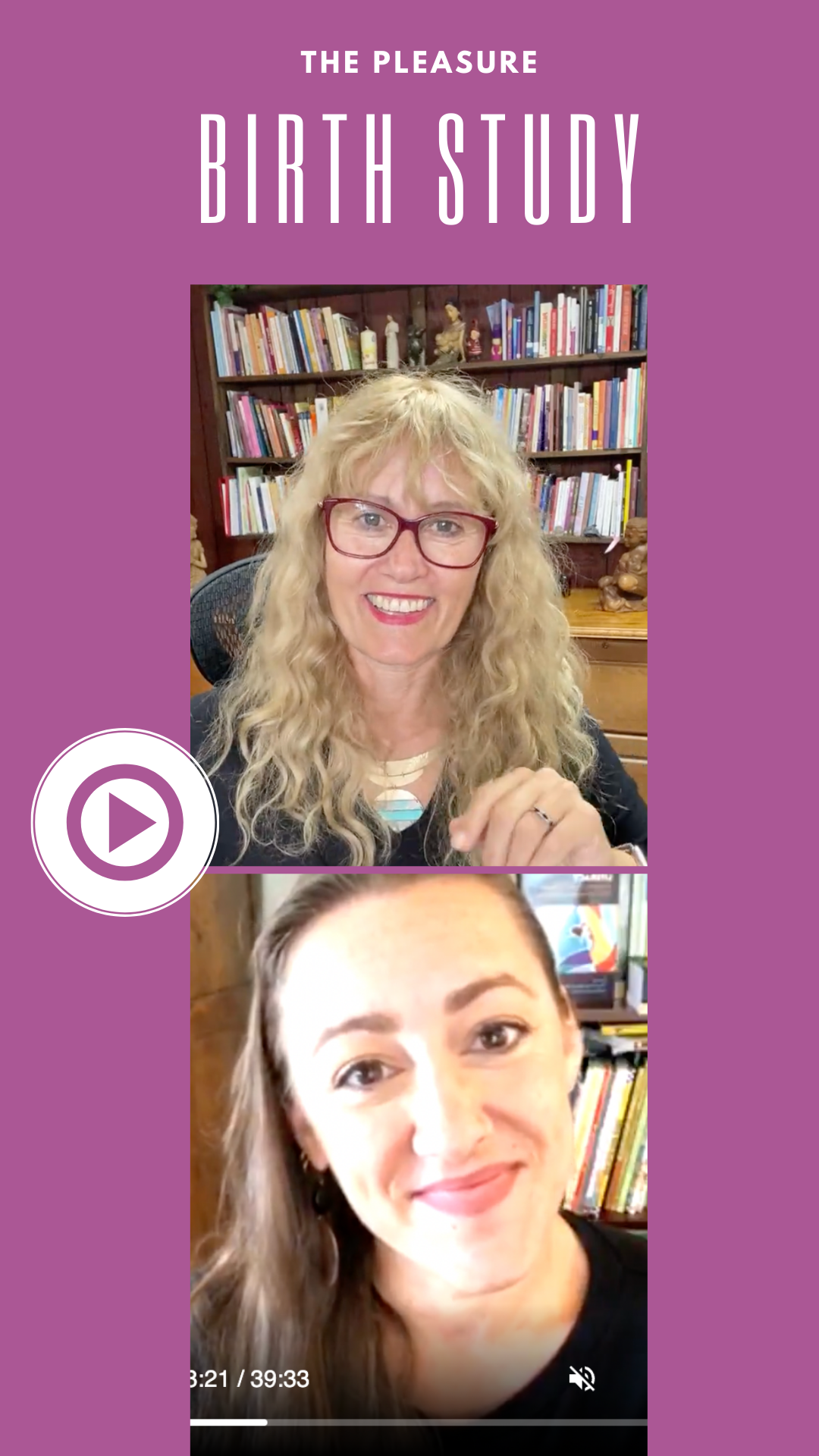When I told him “I study pleasure experienced during birth,” he said, “There’s no such thing.”
Author: Elisabeth Bolaza

Here’s how it went down.
I was a very large 6-months pregnant with my second baby with the audacity to travel to attend a conference on women’s sexual health. It was an incredibly illuminating experience. Sexual medicine professionals, mostly OB/GYNs, with a healthy dose of allied professionals mixed in.
I was a rather unusual attendee (and not only because I was very very pregnant). You see, I was a doctoral student in human sexuality – a rather uncommon scholarly field. There are only two accredited Human Sexuality Ph.D. programs in the United States. Anyway, I was gearing up to start my dissertation research, the mixed-methods study I’m currently running called The Birth Pleasure Study.
Why birth pleasure?
Well, I experienced it. I somehow decided it was a great idea to become a mom in the middle of a doctoral program. Okay, so I’m kinda into being unusual. And… I still think it was a great idea. Here’s the thing. Throughout my entire doctoral program, mothers/gestational parents, pregnancy, birth, postpartum, breastfeeding – the sexuality of these things were barely even touched on in my academic courses in human sexuality. Scarcely a reading assignment dealt with the sexual aspects of any of these things. Meanwhile, I moved through my first pregnancy astonished at how sexual the process was for me.
Then I gave birth to my first baby.
I could go into the whole story, and I’m tempted to, but it’s long. The quick and dirty version is that after over 30 hours of hard labor at home with my homebirth midwife I transferred to a hospital due to elevated blood pressure. It wasn’t exactly the homebirth I had planned, but it was my choice and was necessary. I had been awake for over two days. I needed rest. After a failed epidural, and then a second failed epidural, I was shattered. Pulverized. The exhaustion and pain had crushed me to powder. When I finally reached 10cm and felt the pushing start to take over, something happened. Something shifted in me. In just three contractions, my baby was crowning and then quickly emerging into life.This is when reality snapped open for me.
As she was born, my trampled particles came back together in a flash of light and color. Everything fused into one being, and I was all of it. I was all sound. All color. All forces united into a singularity. I was the unspeakable power of life itself. Every molecule of my being glowed. Every cell sang out in ecstatic song. Everything. Coming. Together. Honestly, the word “orgasm” feels tiny and almost comical in comparison. This was a supernova of life itself. More pleasure than I could even begin to describe. Physical, spiritual, visceral, ethereal. All of it. There just aren’t words, at least in English, for the experience I had. But as I took hold of that little human being and pulled her to my heart, I would never be the same.“WHAT WAS THAT?!”
As a researcher, I had to know what that was. And so, like the true nerd I am, I spent the next year diving into the literature on birth, sexuality, maternal health, obstetrics, midwifery, psychology, and more. Anything I could get my hands on to get a grasp on what was known about this phenomenon I had experienced. I read and read. Dug and dug. And it became clear that the academic literature has almost nothing to say about pleasure and birth. Some important work offered explorations of the hormonal and physiological connections of birth to orgasm…namely by Dr. Sarah Buckley, and the work of Debra Pascali Bonaro and Elizabeth Davis, and Ina May Gaskin for sure. But very little by way of biomedicine, public health, and even psychology. And I could not find a single study that had attempted to quantify how common or uncommon pleasurable birth is.So, I decided to find out for myself.
I designed The Birth Pleasure Study to do that work of deeply and rigorously researching how pleasure is experienced in the process of birth, and how those experiences impact mothers and gestational parents going forward. Our health. Our sexuality. Our sense of self and place in the world. I wanted to know everything about it.So here I am, now three full years into this research.
And the findings are starting to emerge. It’s fascinating. While the study is still ongoing and I’m eager to hear from more people about their experiences of birth (please take the survey if you can at https://elisabethbolaza.com), pleasurable or not, what I can say with 100% certainty is that this phenomenon, experienced in many shades and called by many names, including “orgasmic birth,” “ecstatic birth,” “positive birth,” “birth pleasure,” and beyond…this is real and has powerful implications for how birth happens in our culture. I interviewed 23 women and gestational parents from many races, genders, and class positions, in-depth about their experiences of pleasure during the birth process. Their rich insights helped me to design “The Birth Experience Survey” that is currently open and looking for even more participation (visit https://elisabethbolaza.com to participate). Okay, back to the conference bit of the story though.So, I’m at this conference, right?
Standing at the “new members” table, with my great big belly. An older gentleman approaches. I recognize his face and name and immediately realize this is the current president of the organization. “So, how far along are you?” he asks. Now, I do understand the question. I’m hugely pregnant. I know it’s hard not to ask. But also, just consider that I had flown all the way there, paid to attend, and all that jazz. I did not do all that so I could tell total strangers how far along I am in my pregnancy. I did all that so I could engage with other professionals around my work and make meaningful connections with others in my field. But, like I had with every single other person I’d interacted with thus far, of course, I answered “Almost six months.” “Soooo, what do you do?” he asks. “I’m a doctoral student. I study pleasure experienced during birth.” “There’s no such thing.” He scowls. I’m of course none too pleased with this knee-jerk response, but gingerly respond “I assure you it is a thing.” “I’ve spent my career fixing the damage birth does to women,” he looks down at my belly. Deciding not to get into an argument with the president of the organization in our very first interaction, I refrained from calling him on his mansplaining or going into more depth other than to say, “Well, l experienced it myself during my first birth, so that’s where my research began.” His face quickly changed colors and he turned his attention to other members of the newbie table. I stood there silent. In that moment I knew I had to keep going. I committed to following my curiosity to the end. Birth is managed and overseen by people for whom birth is and has only ever been one thing – dangerous. While birth has its pain, its hardship, its scary places, it’s so much more than just painful, scary, and hard. Birth is magic. Birth is joy, and beauty, and power. And love. Birth is pleasure, too. And have to know about this like we need to know about the gas pedal AND the break pedal. We need to know what makes birth go, and what makes it stop. We need to know what makes birth great, as well as traumatic. We can’t make birth better unless we understand what makes birth good. And that evidence base must be built up to make an impact on the places birth is happening now. So, to all those who are so sure “There’s no such thing” as pleasure during birth, please look forward to my forthcoming publications. I already have some interesting data to share with you for your “evidence base.”



